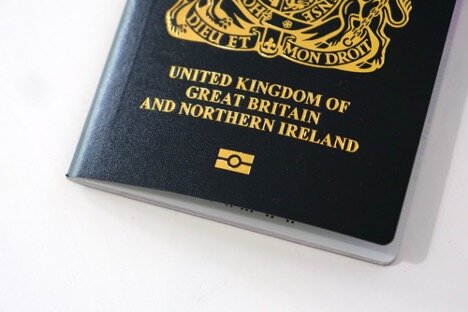- Joined
- 22 Jan 2007
- Messages
- 23,424
- Reaction score
- 3,302
- Country

Clear enough to the courts. She lost.Evidently, it's not clear

Clear enough to the courts. She lost.Evidently, it's not clear

Doesn't apply to this case, "The Commission in G3 (para 63) has confirmed that, this provision is confined to persons who were alive during the commencement of the that Order in 1972"Additionally, because she affirmed (by conduct) allegiance to another (hostile) state, she is disqualified from Bangladeshi citizenship.
Clear enough according to the UK courts, but they're Bangladeshi laws. And only Bangladesh have the authority to interpret their own laws.Clear enough to the courts. She lost.
Consequently, one is forced to turn to the decisions of the Special Immigration Appeals Commission (SIAC) of the UK to extract the meaning and interpretations given to the relevant Bangladeshi laws and regulations on citizenship. This lack of clarity in Bangladeshi citizenship laws and regulations has been recognised by the SIAC.
Still amusing yourself with trolling, but nothing to add to the debate, as usual.Looks like Pat ex is losing on all counts. He should just stop digging, give up and admit defeat.

Our courts had to look at all the evidence when coming to a judgement. Of course they had to look at Bangladeshi law in relation to citizenship to enable a conclusion to be made. They were only taking what was clearly written at face value.And only Bangladesh have the authority to interpret their own laws.
It is still the interpretation of a UK court on the Bangladeshi laws of citizenship.Our courts had to look at all the evidence when coming to a judgement. Of course they had to look at Bangladeshi law in relation to citizenship to enable a conclusion to be made. They were only taking what was clearly written at face value.
This is gone into in great detail in the judgement. Have you read it yet?

No they don't. Our courts decided that if Bangladeshi law says you become a citizen at birth, then that is what they meant. To say we can't interpret laws of other countries because only they know what they meant, and it may not be what written, is frankly ridiculous.Only the issuing authority have the right to interpret their own laws.

That is also wrong. Governments make law, the courts interpret them.Only the issuing authority have the right to interpret their own laws.
Not so in Bangladesh. The courts in Bangladesh have the power to ignore any laws they like.That is also wrong. Governments make law, the courts interpret them.
You think that UK have the authority to interpret other country's laws, especially when they differ from that country's own interpretation.No they don't. Our courts decided that if Bangladeshi law says you become a citizen at birth, then that is what they meant. To say we can't interpret laws of other countries because only they know what they meant, and it may not be what written, is frankly ridiculous.
The Home Secretary, when depriving Shamima’s citizenship in 2019, stated that Shamima was a “British/Bangladeshi dual national” and so he is “satisfied that such an order will not make [her] stateless.” However, Bangladesh’s ministry of foreign affairs has said that the government was "deeply concerned" she had been "erroneously identified" as a Bangladeshi national.
The Bangladeshi authorities have stated unequivocally that Shamima is not a Bangladeshi citizen and there is "no question" of her being allowed into the country. Practically speaking, Shamima is de facto stateless. Shamima is not a British citizen nor is she a Bangladeshi citizen—she has no consular support from the Bangladeshi authorities nor can she avail herself to the protection of the country.


Do you mean the government don't make laws or the courts don't interpret them?Not so in Bangladesh
The government of Bangladesh make laws, but the courts are not obliged to adhere to them.Do you mean the government don't make laws or the courts don't interpret them?

Link?but the courts are not obliged to adhere to them.

This really is explained in the judgement, in detail.You think that UK have the authority to interpret other country's laws, especially when they differ from that country's own interpretation.
